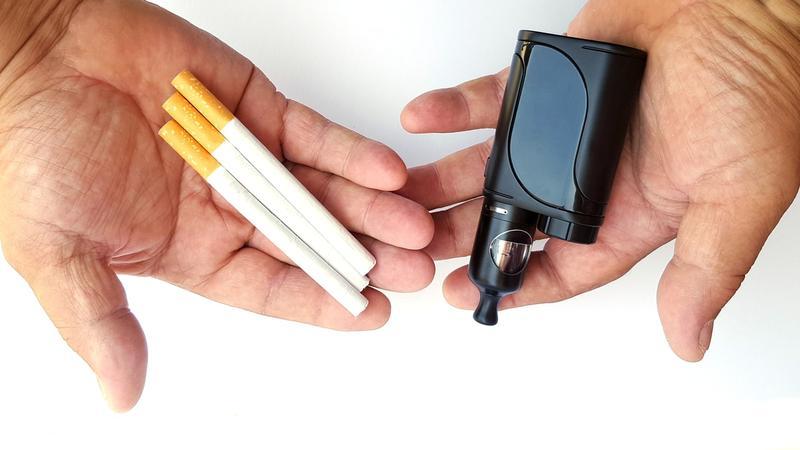It should come as no surprise that tobacco users pay higher life insurance rates.
According to a University of Waterloo study, 15.1% or 4.6 million adult Canadians smoke tobacco. The health risks related to smoking are well known. Smoking-related diseases range from lung, throat, and bladder cancers to chronic bronchitis and emphysema. Moreover, smoking increases the risk of heart attacks and strokes.
Insofar as smokers go, insurance companies protect themselves from the higher risk smokers pose by increasing rates for tobacco users.
A life insurance policy provides your beneficiaries with a specific amount of money outlined in that policy should you die. Failure to disclose your smoking habits to an insurer when you apply for a life insurance policy constitutes fraud. It could result in your policy being cancelled or a claim being denied. But what happens if you start smoking after you have already taken out a policy?
What Constitutes a Smoker for Insurance Purposes?
There are many levels of tobacco use, from the occasional to the daily smoker. Insurers make no distinction between casual and regular nicotine users. Insurers may classify you as a smoker if you use nicotine products of any kind including cigarettes, cigars, cigarillos, and chewing tobacco as well as smoking cessation products.
When filling out a life insurance application, you will be asked about tobacco use within a specified period, which is commonly six to 12 months. Any level of nicotine use during that time will classify you as a tobacco user for life insurance purposes.
Tobacco policies are issued with a higher premium than non-smoker policies, no matter how good your health might be. If you were a non-smoker at the time of your application, you would be issued a regular non-tobacco user policy.
What Happens If You Take Up Smoking After Getting Life Insurance?
Should you start smoking after your life insurance policy has been approved and issued, it is difficult for your insurance company to find out. There are some situations, however, in which you will find yourself facing some difficulty as a result.
Most insurance companies have something called the contestability period, during which your life insurance benefits can be questioned. If you die during that time, there will be an investigation into the circumstances. Suppose the insurance company discovers that you misrepresented something on your application such as tobacco use. In that case, they can deny the claim or adjust it to allow for the premiums you should have been paying as a smoker.
If you start smoking after having been approved for a non-smoker policy, you have technically not committed fraud, as you were, in fact, a non-smoker when you signed the papers. But what if your death occurs from a smoking-related illness? In that case, it may be difficult for the insurance company to determine exactly when you started smoking, and there may be some suspicion of fraud. If there are signs you smoked for an extended period, your beneficiaries could lose out on the full amount of the policy benefit.
How Does Vaping Affect Life Insurance?
Vaping, or using e-cigarettes, may also affect a life insurance premium. Pitched as an alternative to traditional smoking, vaping involves consuming an aerosol often mixed with nicotine through an electronic device that simulates tobacco smoking.
Health Canada warns vaping with nicotine can lead to nicotine addiction. Plus, there may be long-term consequences to your health since inhaling the substances in vaping products is unknown and continues to be assessed. For instance, the Heart and Stroke Foundation of Canada warns vaping is linked to respiratory issues and increased blood pressure.
Though there may be variability across life insurers on whether or not vaping is treated in the same way as people who smoke cigarettes or cannabis, but if you vape, chances are you will be considered a smoker and will face higher life insurance premiums.
How Smoking Affects Term Life Insurance Policies
If you have taken out a whole or universal life insurance policy, taking up smoking won’t impact your premiums, because they are locked in for life. Changes to your health status may not affect your rates.
Term policies, on the other hand, expire or renew, and a new medical exam is often required to continue or obtain more coverage. The medical exam and questionnaire are designed to uncover any changes in your health status since you first took out a policy, including taking up smoking. A urine test can show evidence of nicotine use.
We did a quick comparison of life insurance premiums in August 2020 on a $250,000 10-year term life insurance policy providing single coverage for both a smoker and non-smoker. Our fictional customers were a 30-year-old man and woman living in Toronto. The difference in premiums are noteworthy. Here are the lowest rates we found:
| Gender | Smoker's Annual Premium | Non-Smoker's Annual Premium |
|---|---|---|
| Male | $288 | $160 |
| Female | $192 | $125 |
